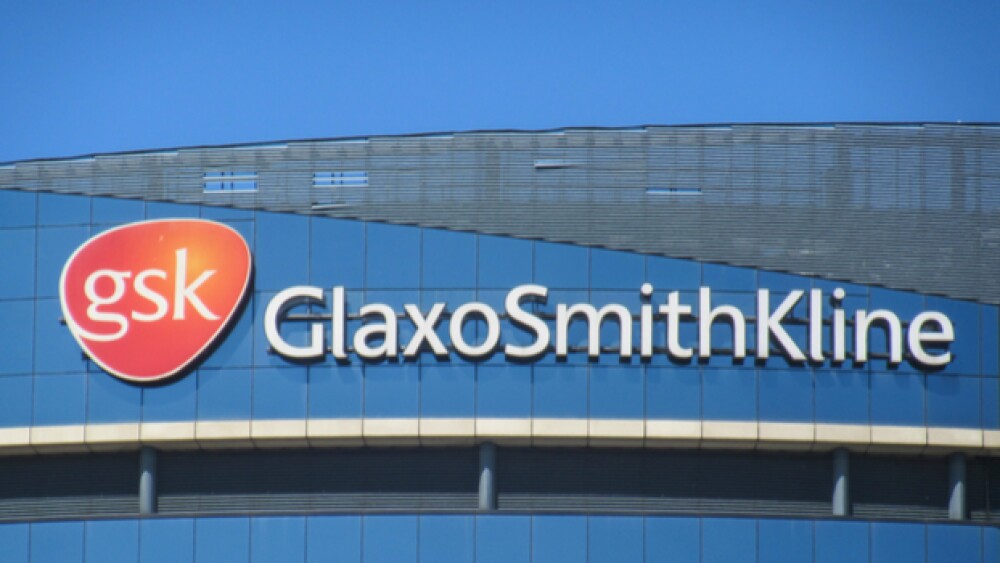According to reports, Novartis veteran Jonathan Symonds is likely to be named the next chairman of the board.
Willy Barton / Shutterstock
GlaxoSmithKline’s Zejula (niraparib) hit the mark in the Phase III PRIMA study as a maintenance therapy in patients with first-line ovarian cancer following platinum-based chemotherapy.
This morning, U.K.-based GlaxoSmithKline said the PRIMA study met its primary endpoint of a statistically significant improvement in progression-free survival for women regardless of their biomarker status. PRIMA is a double-blind, randomized Phase III study designed to evaluate Zejula versus placebo in first-line Stage III or IV ovarian cancer patients. The study assesses the efficacy of Zejula as maintenance treatment, as measured by progression-free survival. In its announcement, GSK did not provide full details of the trial data. The company said full results will be presented at an upcoming scientific meeting, although the company declined to state which one. The safety profile remained consistent with previous studies.
Hal Barron, GSK’s chief scientific officer and head of R&D, said that of the 300,000 women across the globe who are diagnosed annually with ovarian cancer, only about 15% of patients are currently eligible to receive PARP inhibitors as their initial therapy. He noted that the data from the PRIMA trial shows that Zejula “has the potential to significantly benefit even more women with this devastating cancer.”
Ovarian cancer is the fifth leading cause of cancer-related deaths in the United States. It is estimated that this year there will be more than 22,000 women in the U.S. diagnosed with the disease and about 14,000 disease-related deaths. While there are high response rates to platinum-based chemotherapy in the second-line advanced treatment setting, GSK noted that approximately 85% of patients will experience recurrence within two years.
Zejula was at the center of GSK’s 2018 $5.1 billion acquisition of Waltham. Mass.-based Tesaro Oncology. Zejula is an oral, once-daily PARP inhibitor used as maintenance treatment for ovarian cancer that secured approval from the U.S. Food and Drug Administration (FDA) in 2017. Zejula was the first PARP inhibitor to be approved by the FDA that does not require BRCA mutation or other biomarker testing. At the time GSK flexed its M&A muscle to support its newly-positioned long-term oncology focus, Barron said the company has a strong belief that PARP inhibitors are “important medicines that have been underappreciated in terms of the impact they can have on cancer patients.”
Zejula is being studied for potential use in the treatment of lung, breast and prostate cancer, both as a monotherapy and in combination with other medicines, such as Tesaro’s own checkpoint inhibitor, dostarlimab.
In addition to supporting its PARP program, GSK is also in the midst of naming a new chairman of its board of directors. This morning, Bloomberg reported that Novartis and AstraZeneca veteran Jonathan Symonds is poised to assume that role. Symonds will replace Philip Hampton, who announced in January that he would step down from his role ahead of the company’s plan to split into two separate business units -- consumer healthcare business in a partnership with Pfizer, and the other, GSK’s pharmaceutical business. GSK told Bloomberg it would make an announcement about Hampton’s replacement “in due course” but was not prepared to comment on the Symond’s rumor at this time. Symonds left Novartis in 2013 and currently serves as deputy chairman at HSBC Holdings Plc.





